Embattled Pakistan Prime Minister Yusuf Raza Gilani on Saturday appeared to reach out to the powerful army by stating that all state institutions will be allowed to play their role in an apparent bid to resolve the tense stand-off between the government and the military.
With Army Chief General Ashfaq Parvez Kayani by his side, he described the armed forces as a "pillar of nation's resilience and strength" and lauded their services in the defence of the country.
"It has been my government's policy to allow and enable all state institutions to play their role in their respective domains for the common good of the people. It is this desire to set good and healthy democratic traditions that has enabled us to seek strength from Parliament, which is the hallmark of a democratic government," Gilani said at a meeting of the Cabinet Committee of Defence attended by his ministers and top army officials including Kayani.
The prime minister's seemingly conciliatory remarks came on a day when Kayani met President Asif Ali Zardari at the Presidency, in the midst of a tense stand-off between the military and the government over a move purportedly on behalf of Zardari seeking United States's help to avert an army coup.
Click ON NEXT for more...
Pakistan PM tries to make peace with powerful army
Image: Pakistan Prime Minister Yusuf Raza Gilani and Army chief General Ashfaq Parvez KayaniThe situation was further aggravated by the summary sacking of Lieutenant General (retired) Khalid Naeem Lodhi, who was considered close to Kayani, over an affidavit filed in the Supreme Court without consulting the government.
The apex court will on Monday hear a case related to the National Reconciliation Ordinance that was promulgated during former President Pervez Musharraf's tenure that gave amnesty to Zardari and many others in graft cases.
The National Assembly, lower house of Parliament, will also meet on Monday to vote on a resolution moved by a ruling coalition member seeking strengthening of democratic institutions.
Media reports said that during his meeting with Zardari, Kayani requested the President to tell Gilani to "retract" his statements criticising the chiefs of army and the Inter Services Intelligence.
There was no official word on what transpired in the hour-long meeting.
In his speech today, Gilani said, "National unity is the need of the hour. Democracy provides avenues to forge national consensus. Each organ and state institution has to play its due role, within its respective domain, to bring forth the best in promoting Pakistan's national interest."
Click on NEXT for more...
Pakistan PM tries to make peace with powerful army
Image: A file photo of Pakistan President Asif Ali Zardari, Prime Minister Yusuf Raza Gilani and Pakistan Army chief General Ashfaq Parvez KayaniAt the same time, he pointed out that civil institutions "have their due role to play for socio-economic development and for ensuring progress and prosperity".
He said, "Together in complete harmony with each other and other vital institutions, we can change the country's destiny and accord its rightful place in the comity of nations."
The prime minister's remarks reflected an apparent effort by the government to ease tensions with the army after the two sides indulged in angry exchanges earlier this week.
On Monday, Gilani had said the army and intelligence chiefs had acted in an "unconstitutional and illegal" manner by filing affidavits on the memo issue in the Supreme Court without getting the government's approval.
The military hit back on Wednesday by saying that Gilani's criticism of the army and ISI chiefs could have "grievous consequences".
Gilani referred to his government's efforts to work with the military and other state institutions to strengthen democracy and tackle challenges like national security issues.
Click on NEXT for more...
Pakistan PM tries to make peace with powerful army
Image: Pakistan Army chief General Ashfaq Parvez KayaniRegular meetings of the Economic Coordination Committee and Defence Committee of the Cabinet had helped achieve consensus on important issues, he said.
"Forums for inter-ministerial and inter-agency consultations and coordination, such as the DCC and the Cabinet, exist and are functioning smoothly," he said.
The meeting of the Defence Committee of the Cabinet was called to discuss last year's cross-border air strike by the North Atlantic Treaty Organisation that killed 24 Pakistani soldiers and the government's subsequent decision to revamp its ties with the US and NATO.
Besides Kayani, the meeting was attended by the air force and navy chiefs, the Chairman of the Joint Chiefs of Staff Committee, Senior Minister for Defence Production Chaudhry Pervaiz Elahi, Defence Minister Chaudhry Ahmed Mukhtar, Foreign Minister Hina Rabbani Khar and Interior Minister Rehman Malik.
The director general of the Intelligence Bureau attended the meeting but ISI chief Lieutenant General Ahmed Shuja Pasha was conspicuous by his absence.
Click ON NEXT for more...
Pakistan PM tries to make peace with powerful army
Image: Pakistan President Asif Ali ZardariThe meeting considered the US Central Command's inquiry report on the cross-border NATO air strike of November 26 last year that took Pakistan-US ties to a new low.
Referring to his government's efforts to reset ties with the US after the NATO attack, Gilani said Pakistan's sovereignty and territorial integrity were "not negotiable".
He said, "We would reject any approach that would tend to compromise our sovereignty, honour and national dignity. Our contribution and steadfast commitment to stability
and peace at home and in our region is unquestionable and second to none".
While engaging in the US-led war on terrorism, Pakistan had endeavoured to safeguard its "supreme national interests in a most effective and inclusive manner," he said.
Pakistan has fought terrorism and extremism in its "national interest" as the "continued strife and conflict in Afghanistan" has directly impacted the country, he said.
Click on NEXT for more...
Pakistan PM tries to make peace with powerful army
Gilani said there was "complete national consensus that terrorism will not be allowed any space on the sacred soil of Pakistan".
He added that Pakistan's cooperation with the international community for the war on terror is based on a "partnership approach, which entails mutual respect, trust and mutual interest".
Following the NATO air strike, the Parliamentary Committee on National Security was asked to frame recommendations for resetting the ties with the US and a "full review of the terms of cooperation with US, NATO, ISAF is in process," Gilani said.
"Pakistan is a peace-loving country. We are committed to forging good relations with all neighbours and the international community. Pakistan will continue to play a responsible role for promoting global and regional peace and security," he added.

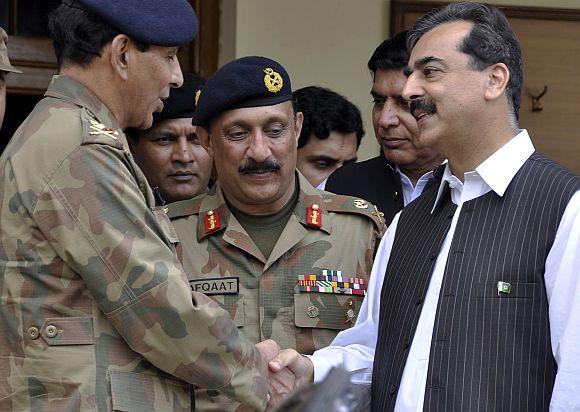

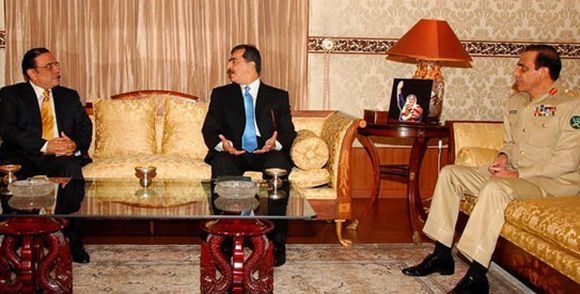
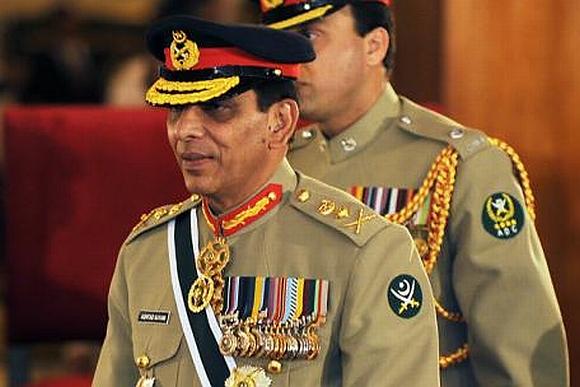
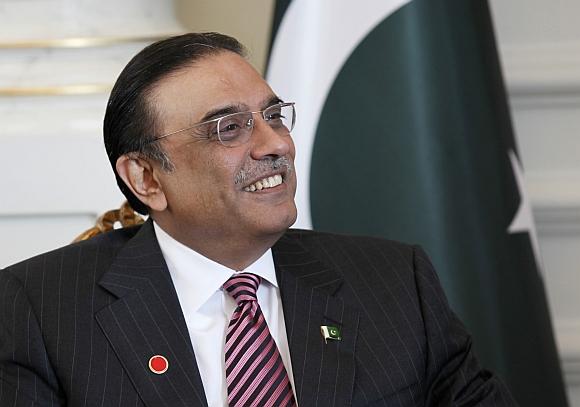
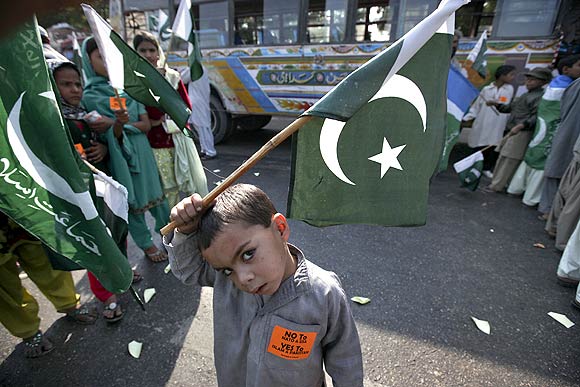
article